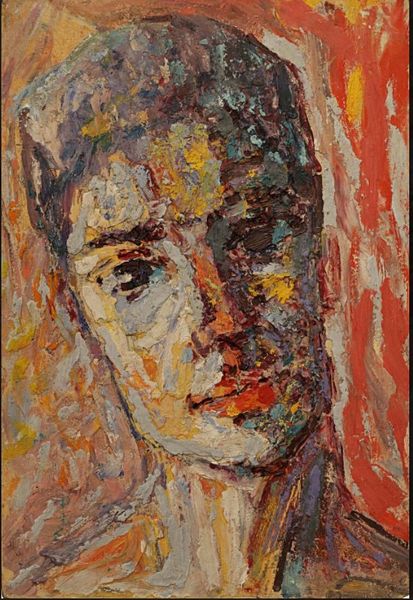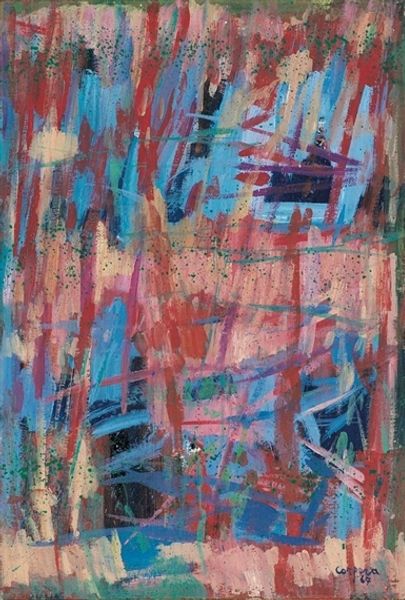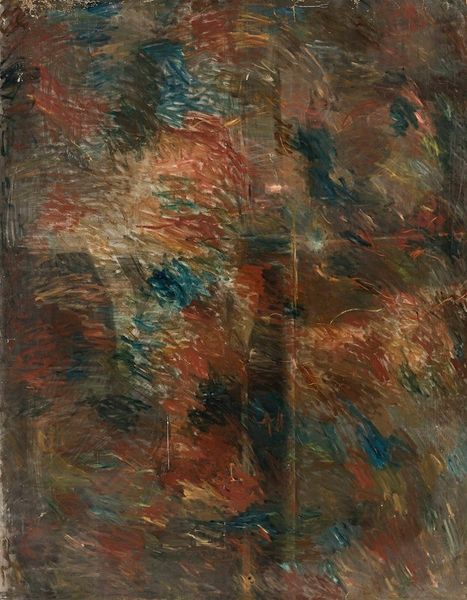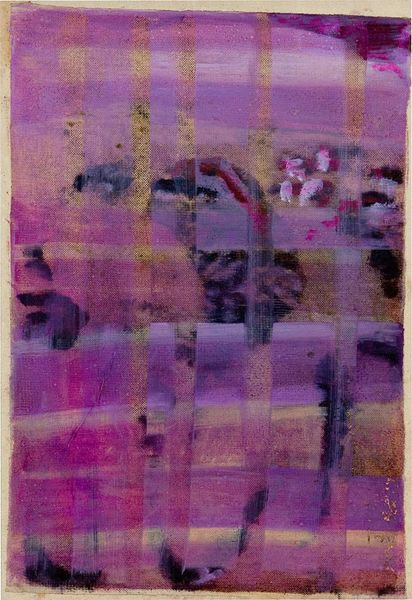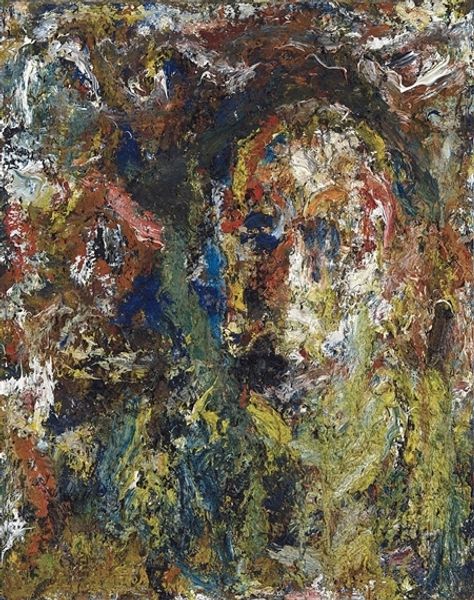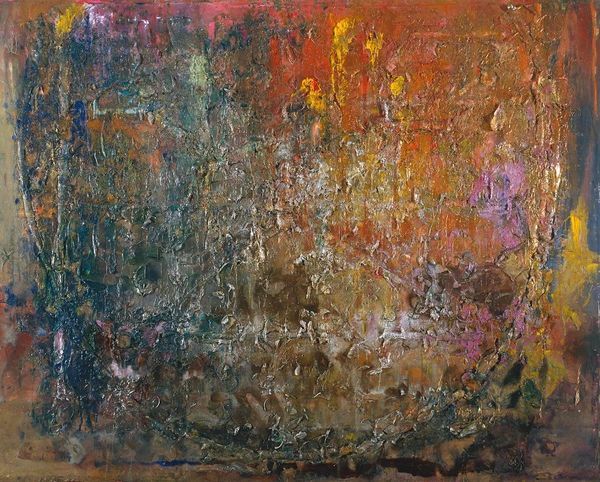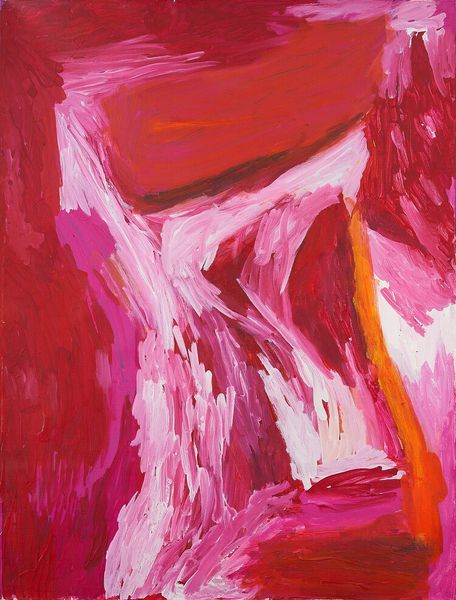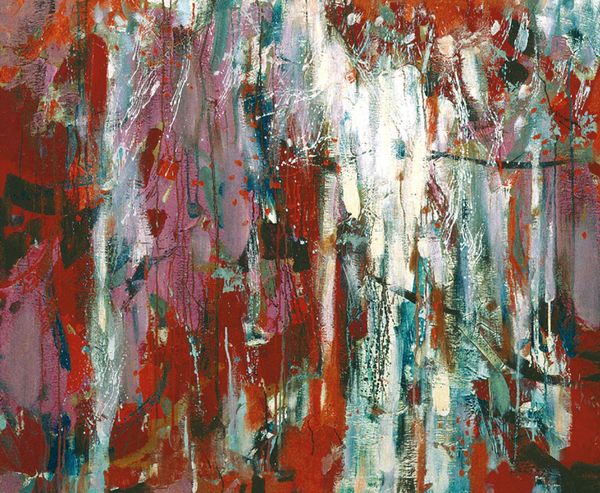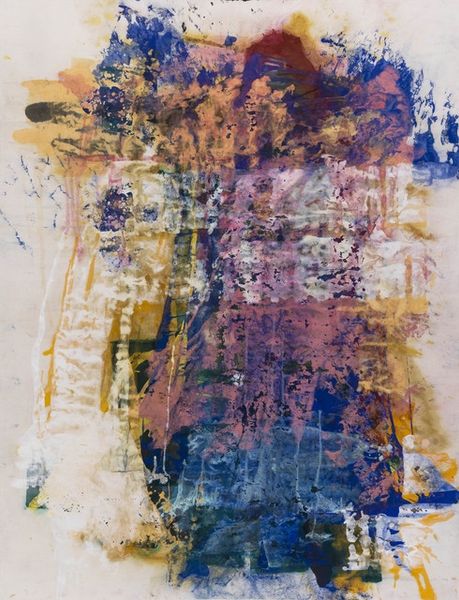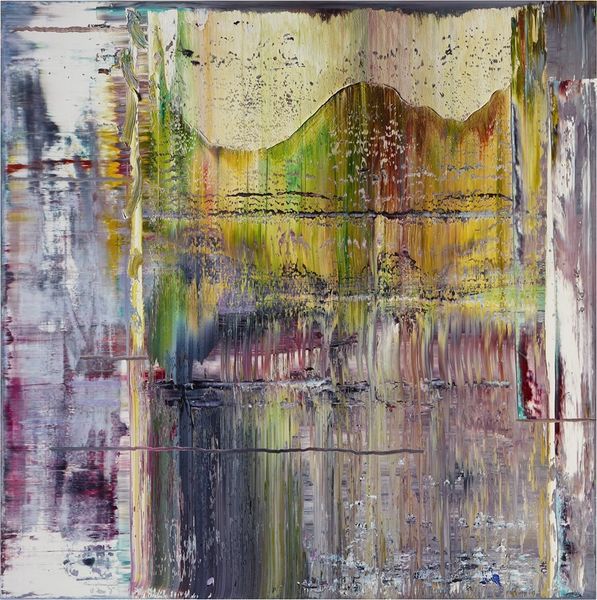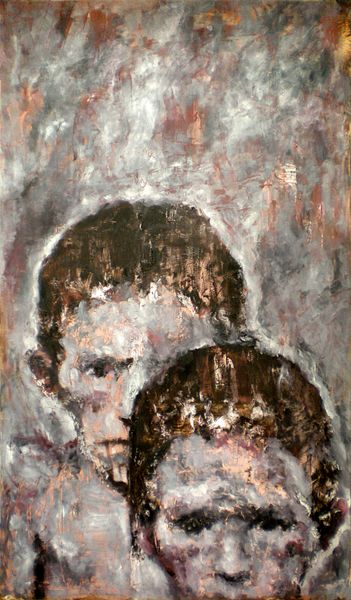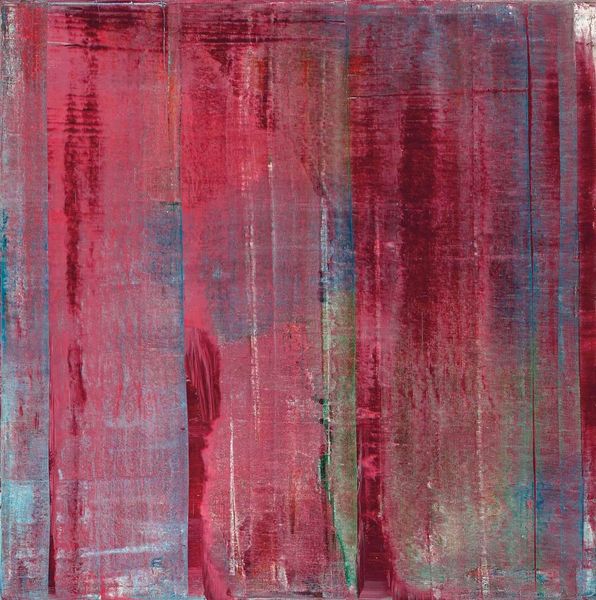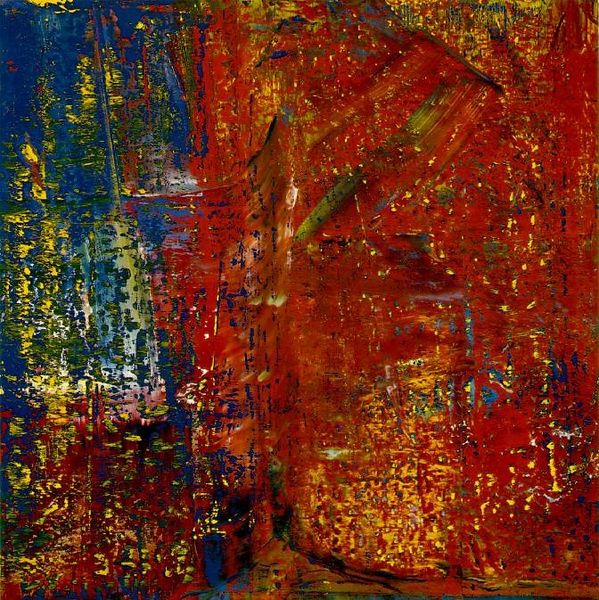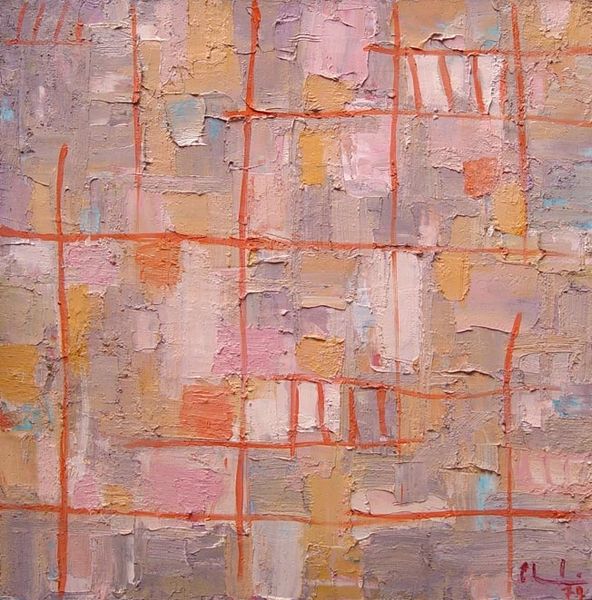
oil-paint
#
portrait
#
abstract expressionism
#
oil-paint
#
figuration
#
neo expressionist
#
neo-expressionism
#
abstraction
#
modernism
Dimensions: 250 x 250 cm
Copyright: Zeng Fanzhi,Fair Use
Curator: Standing before us is Zeng Fanzhi’s “We n:2,” an oil-on-canvas work from 2002. My immediate impression is… claustrophobic. A face seems to emerge from a dense curtain of brushstrokes. Editor: Claustrophobic, interesting. For me, I'm captivated by the layering. I see the mark-making as intrinsic to the overall experience. You have to wonder about Zeng Fanzhi’s deliberate, repetitive application, almost like labor turned meditative practice. What does it suggest to you, thinking about this painting as something produced rather than represented? Curator: The repetition creates an unsettling mask, obscuring more than it reveals. The brushstrokes themselves are almost hieroglyphic—each a little wave, like distorted smiles, yet indecipherable on their own. They certainly reference the layering inherent in portraiture traditions and explore modern identity. It becomes about concealment. Editor: Precisely, concealment! What materials contribute to that? There’s the texture of oil paint, of course. Notice the limited palette: the muddy roses and browns. How does that speak to its emotional content? Curator: The restricted palette lends the work a certain gravity, even morbidity. The color itself feels almost… corporeal, referencing blood and flesh, and the symbol of a decaying face. Yet the layering gives the figure a protective layer of remove. Editor: And doesn't that speak volumes about social context? Consider Zeng Fanzhi’s place as a Chinese artist in a globalized world. He's dealing with themes of cultural identity and alienation by working through recognizable and historically loaded forms of representation like portraiture. Curator: Certainly. The fragmented nature of the brushstrokes mirror the fragmented self, caught between cultures and eras, lost to translation. The artwork invites us to face up to the universal anxieties and insecurities that plague us all. Editor: So, the meticulous process mirrors this alienation? Curator: It seems to be, yes. A cycle of creation and obfuscation, building toward an ultimate confrontation with… emptiness? I find that resonates beyond the specific historical and cultural conditions of its production. Editor: Agreed. Looking at it through this lens – this consideration of materiality, labor, and cultural symbol – I feel I grasp a broader understanding of both its beauty and its disquieting effect.
Comments
No comments
Be the first to comment and join the conversation on the ultimate creative platform.
